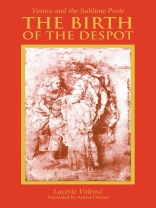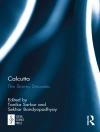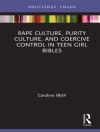In her graceful account of the transformation of European attitudes toward the Ottoman empire during the sixteenth and seventeenth centuries, Lucette Valensi follows the genealogy of the concept of Oriental despotism. The Birth of the Despot examines a crucial moment in the long and ambiguous encounter between the Christian and Islamic worlds: the period after the fall of Constantinople to the Turks, when Venice’s pursuit of its commercial and maritime interests brought two powerful protagonists—Venice and the Sublime Porte—face-to-face.Vivaldi’s oratorio Juditha Triumphans, in which Judith liberates her besieged town by killing the Turk Holofernes, serves as the organizing metaphor in Valensi’s study of how Venice’s perceptions of its rival changed. Valensi shows how Venice’s initial admiration for the sultan and his orderly empire metamorphosed into revulsion at a monstrous tyrant.
Over de auteur
Lucette Valensi is Director of the Center for Historical Research at the University of Cambridge, and Fellow of Emmanuel College.












